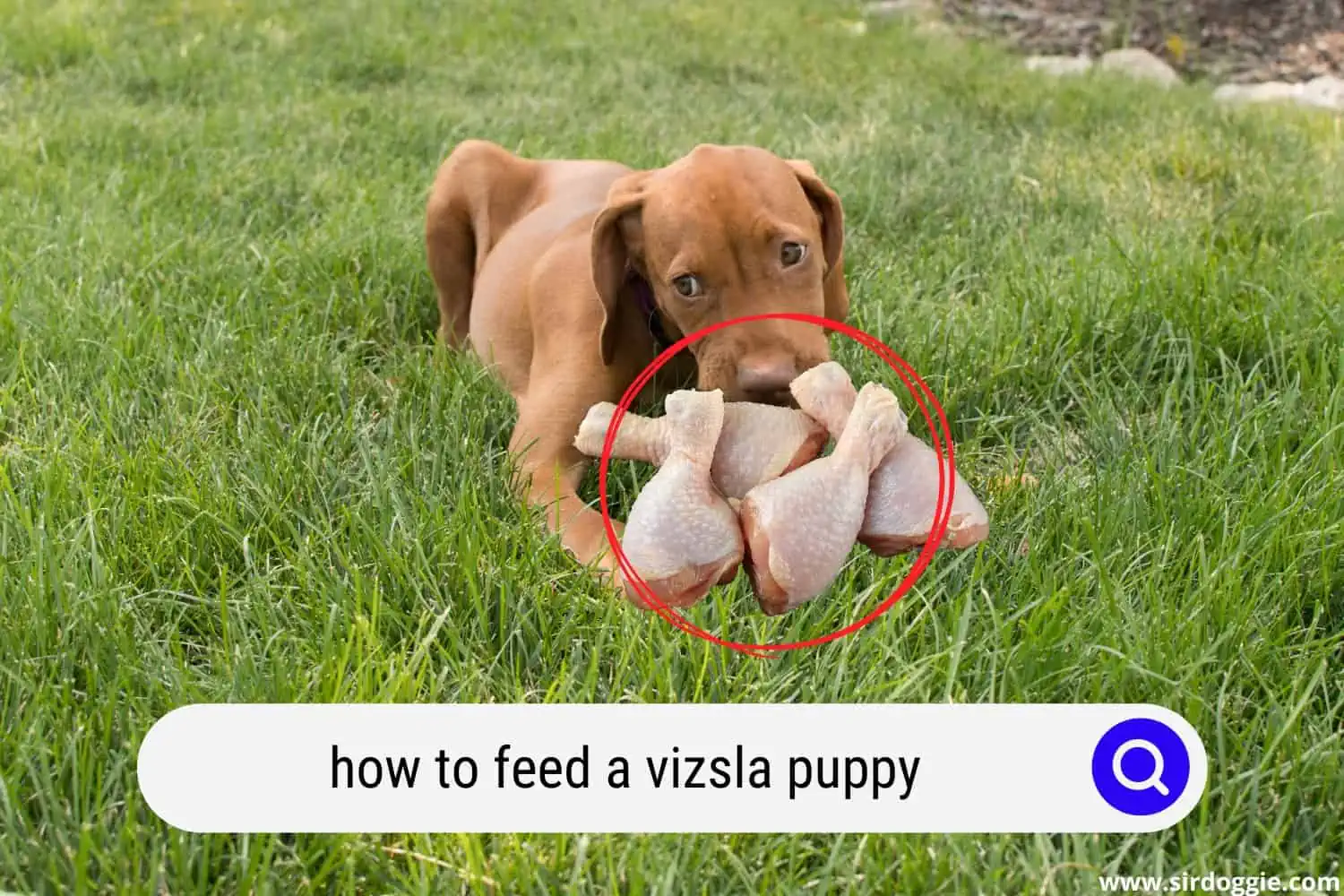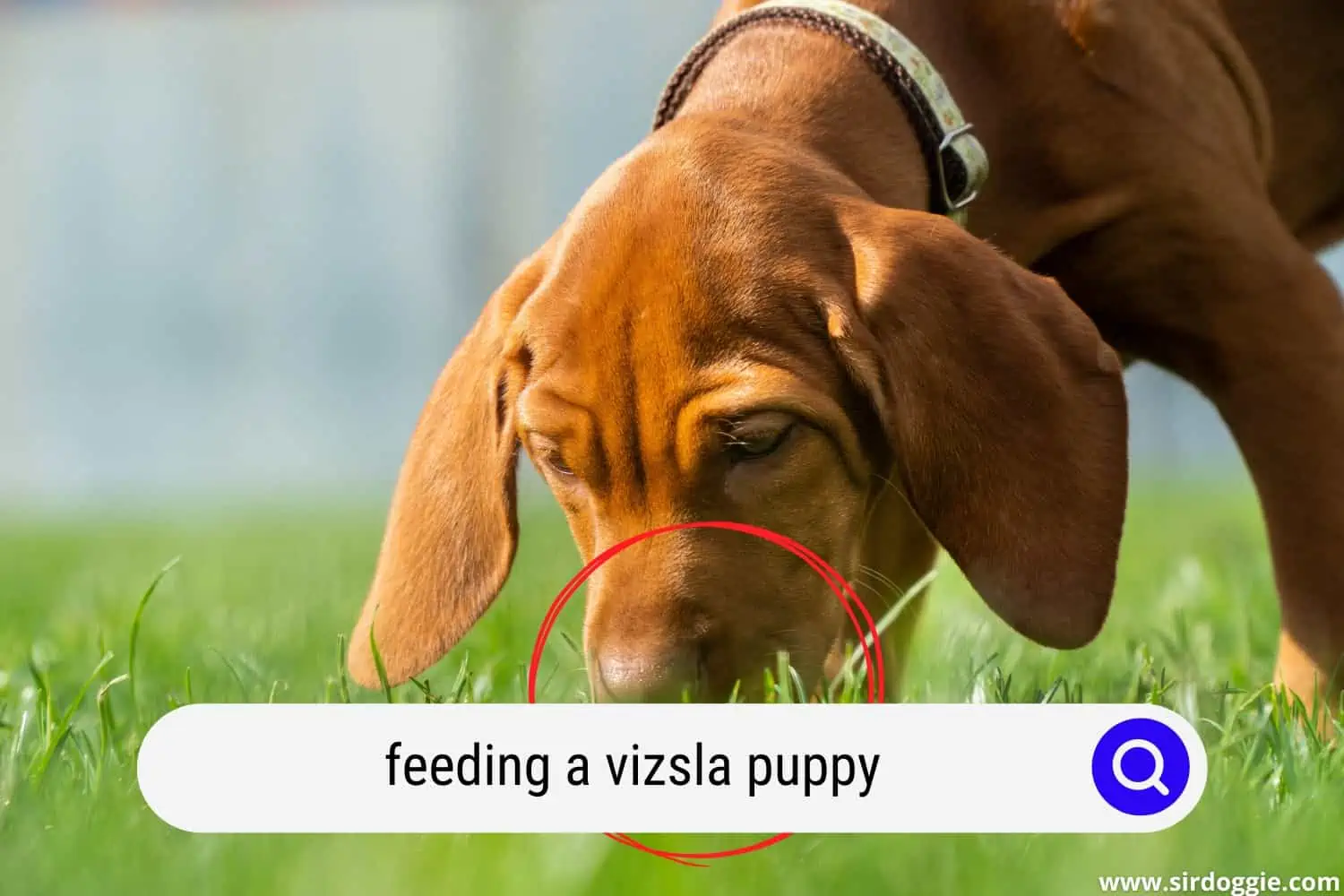How to Feed a Vizsla Puppy
We all know that having a pet is a great responsibility in many ways. We have to be aware of them all the time trying to give them excellent quality of life. The most popular pets among families are dogs, and just like humans, they must be adequately treated as they can also suffer from illness or emotional problems.

Vizslas are a very interesting breed of dogs and are considered throughout the world as excellent pets for families. They are characterized by having great skill when carrying out any hunting activity. They are quite athletic and energetic canines and require exercise accompanied by their owners.
As we know, the organism of a dog is similar to that of human beings, but it should be noted that it is usually more susceptible to certain foods. That is why we must know the most appropriate foods for our pets to prevent them from suffering diseases so that they can live happy life.
Keep in mind that feeding a Vizsla will depend on certain factors such as size, age, or development.
Feeding an adult Vizsla is not the same as feeding a Vizsla puppy. Next, we will focus on the correct feeding of a Vizsla puppy.
How to Feed a Vizsla Puppy?
The Vizsla is a breed of dog that needs an adequate amount of protein, carbohydrates, and healthy fats. Each of them provides various benefits for the body of the pet, but we must make sure to offer them in a balanced way.
As we have said before, the diet of an adult Vizsla should be different from that of a Vizsla puppy. That is due to various factors, such as the development of its body and size.
It should be noted that the foods for both may be similar, but the biggest difference is in the amount that each should consume. The reason for the above is that Vizsla puppies need an appropriate amount of vitamins and nutrients necessary for their proper development.
Vizsla puppies are very active and energetic, so they need a high-quality food source. Dogs of this type have a constant appetite because they tend to spend much of their time exercising and doing other physical activities. It is for that reason that you should feed your Vizsla puppy several times a day in a controlled way.
What is the Amount of Nutrients That Our Vizsla Puppy Should Ingest?
You have to keep in mind that a puppy Vizsla needs a higher percentage of nutrients than an adult Vizsla. That is because, as we have said before, Vizsla puppies need a good diet that allows them to grow healthy and strong and that their development is appropriate for their age.
Adult Vizslas, need at least a food-based meal plan that provides about 5% fat (preferably healthy) and 18% protein. On the other hand, Vizsla puppies need at least 8% fat and 22% protein for their development and growth to be constant. The puppies of this breed require an approximate percentage of nutrients since they are in full growth and need the correct development of their muscles.
We also have to emphasize that a Vizsla puppy requires a calorie intake per day according to its size. In these cases, it would be a good idea to ask a specialist about the appropriate amount of calories for your puppy to eat.
You have to keep in mind that the feeding of a Vizsla puppy should be higher than that of an adult Vizsla during the day. The first ones require to be fed at least between 3 and 4 times a day while the second ones between 2 and 3 times a day.
What Foods are Necessary for a Vizsla Puppy?
Basically, a Vizsla puppy can eat most of the food that adult ones consume but in a more controlled manner. Some foods are:
- Meats: You can feed your pet with any type of meat, including chicken, fish, turkey, pork, veal, and lamb, thanks to the vitamins and nutrients they offer. It should be noted that you should serve this type of food without adding salt or frying it since it can be harmful to its body.
- Fruits: These are considered healthy treats for dogs. They are very beneficial for the health of a Vizsla puppy. Some of them are apples, strawberries, bananas, pears, watermelons, peaches, etc.
- Vegetables: Vegetables are also a healthy source of energy that will help our puppy to stay healthy, strong, and active in any physical activity. Some of them are carrots, spinach, lettuce, cabbage, pumpkins, etc.
- Eggs: They offer a great source of protein necessary for the health of our Vizsla puppy. You can serve your dog cooked food in any way. You have to avoid giving it raw eggs as it is one of the main causes of salmonella.
There are other ways to feed a puppy today, and one of the most proven is the BARF diet.
It consists of feeding our canine using raw meat along with vegetables, fruits, organs, eggs, rice, yogurt, etc. It should be noted that this system must be implemented, maintaining a controlled and balanced diet to prevent our puppy from having health problems.
The quality of food that a BARF diet provides will help our Vizsla puppy in the proper development of its bones, muscles, and ligaments as it grows. Make sure to feed your puppy a daily serving of 2% to 4% of its weight.
Regardless of the food plan that you are going to use in your puppy, you must include an exercise routine that suits its lifestyle. A good diet and daily exercise will allow your pet to grow and develop properly.

Health Aspects to Consider Due to a Poor Diet
Although Vizsla belongs to a healthy breed, they are still living beings that can suffer from diseases if they are not cared for properly. Several conditions can be common in this type of dog, and some of them are allergies, hip dysplasia, cancer, epilepsy, etc.
A poor diet can make your puppy susceptible to certain conditions or diseases, so you must know very well the type of food you have to provide.
One of the diseases generated due to a bad diet is gastric dilation. This condition occurs when a puppy eats fast and in large quantities. Another one is food allergies which happen when a Vizsla puppy is allergic to certain foods.

Family Dog Expert Author
Hi there! I’m Stuart, a devoted dog lover and family dog expert with over a decade of experience working with our furry companions. My passion for dogs drives me to share my knowledge and expertise, helping families build strong, loving bonds with their four-legged friends. When I’m not writing for SirDoggie, you’ll find me hiking, playing with my beautiful dog, or studying music.